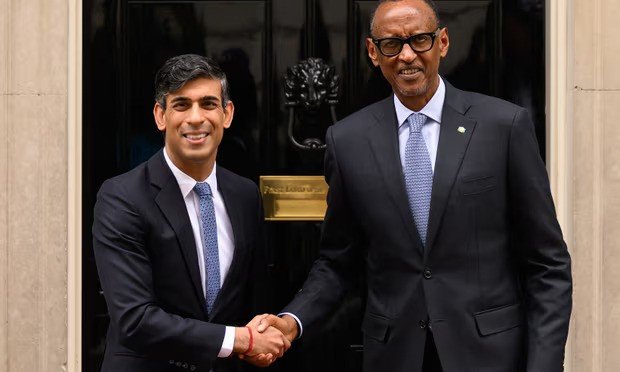The Home Office “does not have a credible plan” for sending asylum seekers to Rwanda, according to a report from a cross-party group of MPs.
MPs Criticize Implementation and Planning
MPs on the Public Accounts Committee expressed “little confidence” in the Home Office’s ability to implement the Rwanda plan. This report, published on Wednesday, is a setback for Prime Minister Rishi Sunak, who had committed to starting flights in June, later pushing it back to July due to election announcements.
Sunak has made the success of the Rwanda scheme a key election issue, promising that flights will happen if the Tories are re-elected. Criticism of the policy spans the political spectrum, including the right of the Conservative Party and Reform UK.
Concerns Over Operational Details
The report reveals that the Home Office is unwilling to disclose how many people it plans to relocate to Rwanda or how it would achieve this. The MPs stated, “The Home Office asserts that it has robust operational plans, which are dependent on the flow of relocations. However, we are concerned by the Home Office’s inability to explain practical details.”
Under Operation Vector, the Home Office deployed around 800 officers in early May to detain asylum seekers for removal to Rwanda. More than 100 migrants were detained, but many have since been released on bail.
Financial and Logistical Issues
The committee, chaired by Hackney Labour MP Dame Meg Hillier, criticized the Home Office for “unacceptable and avoidable mistakes” in setting up large accommodation sites for asylum seekers. The government “failed to protect value for money” in acquiring larger sites such as the former RAF Wethersfield base and the Bibby Stockholm barge.
The initial cost estimates for the Wethersfield and Scampton sites were £5 million each, but these have skyrocketed to £49 million at Wethersfield and £27 million at Scampton. The Home Office cited a “national emergency” as the reason for the inaccurate estimates and the need to “press on quickly” to increase accommodation stock.
Questions About Cost Efficiency and Deterrent Effect
The plan to use larger sites has become significantly more expensive than using hotels. A January 2024 Home Office assessment found that larger sites for asylum seekers will cost £46 million more than the hotels they were meant to replace.
The report also highlighted the Home Office’s struggle to demonstrate that the Rwanda plan will be value for money, relying on a deterrent effect that has yet to materialize. In 2022, the government’s Accounting Officer could not confirm that processing asylum seekers in third countries, including Rwanda, would be cost-effective, necessitating a special ministerial direction to proceed with the policy.
Wellbeing and Support for Asylum Seekers
MPs criticized the Home Office for failing to safeguard around 50,000 asylum seekers whose cases are in limbo. The government is not processing claims for tens of thousands of people who arrived in the UK via small boats and other irregular means, many of whom are living in government-funded hotels with deteriorating mental health due to uncertainty.
The committee has directed the Home Office to explain by the end of July how it is ensuring the wellbeing of people awaiting relocation and its plans for providing clarity about their future. The government must also clarify how it is supporting councils to manage the closure of asylum hotels, which could drive up rental costs, increase homelessness, and strain local councils. Home Office Rwanda Asylum Plan.

